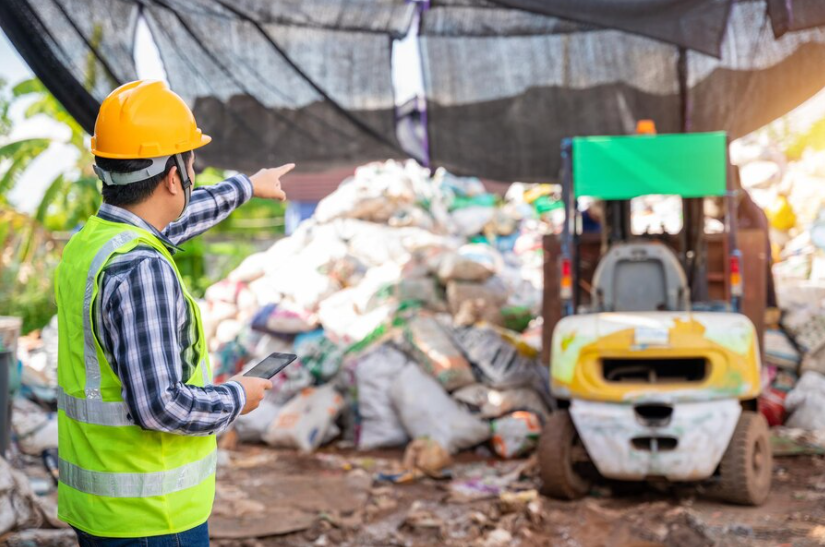As construction continues to thrive, the sky-high demand for efficient waste management within construction sites cannot be overstated. In this discourse, we shall delve into the pivotal role that waste management plays in bolstering sustainable construction practices.
When managing waste on bustling construction sites, exploring the variety of skips for hire Stockport becomes crucial for an efficient waste management strategy. Skips for hire Stockport has to present an indispensable solution for construction projects. Aiming to minimize environmental impact and adhere to waste disposal regulations.
Green Construction
Construction, by its very nature, is a dynamic and resource-intensive industry. From the extraction of raw materials to transportation and processing, each stage contributes to the creation of substantial waste. Here lies the crux of the matter – the environmental impact. A British waste management expert would emphasize the significance of mitigating this impact through strategic waste management practices.
In the grand tapestry of construction waste, there are materials that can be repurposed, recycled, or disposed of responsibly. By implementing efficient waste management, we can curtail the volume of waste destined for landfills, reduce the depletion of natural resources, and foster a more sustainable approach to construction.
Safe Sites
Construction sites, notorious for their inherent risks, demand meticulous attention to safety. The mishandling of waste can pose significant threats, leading to accidents, injuries, and even fatalities. Our commitment to safety must extend beyond the construction process itself and encompass the responsible management of waste.
A proper waste management plan ensures that debris and potential hazards are systematically removed, reducing the likelihood of accidents. This proactive approach not only safeguards the well-being of workers but also contributes to the creation of a secure and conducive working environment.
Cost Savings
For a British construction professional, fiscal prudence is an integral aspect of any project. The judicious management of waste can be a substantial cost-saving measure. Construction projects generate a plethora of materials, some of which can be salvaged, repurposed, or recycled.
By implementing efficient waste management practices, construction companies can significantly reduce disposal costs. Recycling materials and reusing salvaged items lessens the financial burden on the project. It also aligns with a broader ethos of sustainability.
Legal Compliance
The regulatory landscape surrounding waste disposal is increasingly stringent. In the United Kingdom, as in many other regions, there are legal obligations and restrictions pertaining to the disposal of construction waste. Non-compliance can result in fines and legal consequences that can tarnish a project’s reputation and financial standing.
A conscientious waste management strategy, adhering to these regulations. It not only keeps construction projects on the right side of the law but also demonstrates a commitment to ethical and responsible practices.
Resource Conservation and Circular Economy
A pivotal aspect that a British waste management expert would underscore is the imperative of resource conservation within construction sites. Through systematic waste management, materials such as concrete, wood, and metal can be identified, salvaged, and reintegrated into the construction process. This approach aligns with the principles of a circular economy. Where materials are reused and recycled, mitigating the need for constant extraction and manufacturing.
Public Image
Waste management in construction extends beyond the confines of the site; it resonates with the local community and the broader public. British construction professionals are increasingly recognizing the importance of community engagement and positive public relations through responsible waste management practices. Transparent communication about waste reduction initiatives, recycling efforts, and adherence to environmental standards not only fosters goodwill within the community but also positions construction projects as responsible stewards of the local environment.
Tailored Solution
Waste management in construction is not merely a procedural necessity but a holistic approach towards responsible and sustainable construction. From safeguarding the environment to ensuring the safety of workers and complying with regulations, waste management is the linchpin that holds together the fabric of a successful construction project. By carefully assessing the skips for hire Stockport has to offer, construction companies can enhance their waste management efficiency, contributing to a cleaner and more sustainable future.
So, let’s embrace the imperative of efficient waste management, not only as a procedural requirement. But as a cultural shift towards a more sustainable and responsible construction industry. In doing so, we not only meet our present obligations but also lay the foundation for a legacy of conscientious construction practices for generations to come.

